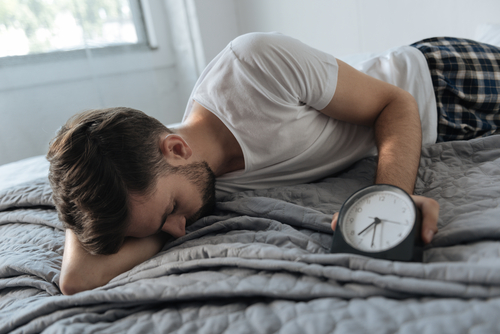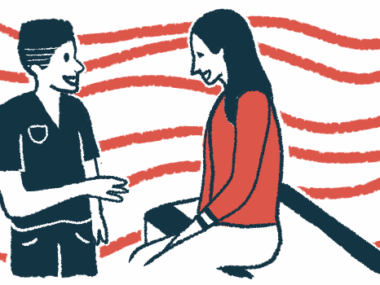Signs of Depression in aHUS Caregivers
Written by |

It can be exhausting and stressful to be the caregiver for someone who has a chronic disorder such as atypical hemolytic uremic syndrome (aHUS). Because stress can trigger anxiety and depression, among other issues, it is imperative that you practice self-care in order to stay healthy.
The following are some warning signs of depression. The severity, frequency, and duration of these symptoms depend on the individual. If you believe you have any of them, speak with your physician about diagnosis and treatment options.
Loss of hope
Depression is a common but serious mood disorder. It’s normal to occasionally feel down, but if you are always in a state of hopeless despair, or in an “empty” mood, you may be depressed.
Diminished pleasure in social or leisure activities
If hobbies or interests that previously were important and enjoyable to you now feel like chores, or if you feel like you’re just going through the motions with friends and family, you may be showing signs of depression.
Perhaps connecting with people who truly understand what you’re going through will help. Several aHUS patient organizations can likely put you in touch with a caregiver support group.
Low energy, or fatigue
If you have fatigue or consistently low energy levels for weeks on end without a clear cause, you may have depression.
Abrupt weight change
If you have quickly lost or gained weight, it may be a sign that something else is wrong. Depression can cause some people to lose their appetite or crave unhealthy or “comfort” foods.
Sleep problems
Some people with depression experience insomnia, making it hard to fall asleep or remain asleep. Others may have difficulty waking up and facing the day.
Mood changes
If you find yourself regularly in a sour mood or have constant feelings of agitation or restlessness, you may be experiencing depression.
Low self-regard
Another sign of depression could be feeling guilty for no reason, or putting yourself down, either internally or when speaking with other people.
Problems concentrating
Problems focusing on tasks, or remembering things, also can be signs of depression.
Experiencing aches or pains
Depression also can cause physical symptoms. For some people, this may include issues like back problems, stomach pains, or just feeling achy all over.
Feeling suicidal
Depression is a significant risk factor for suicide. If you have been having suicidal thoughts, please seek help as soon as possible. In the U.S., the National Suicide Hotline provides 24-hour support by phone, text, or online chat.
Last updated: Sept. 28, 2020
***
aHUS News is strictly a news and information website about the disease. It does not provide medical advice, diagnosis, or treatment. This content is not intended to be a substitute for professional medical advice, diagnosis, or treatment. Always seek the advice of your physician or other qualified health provider with any questions you may have regarding a medical condition. Never disregard professional medical advice or delay in seeking it because of something you have read on this website





